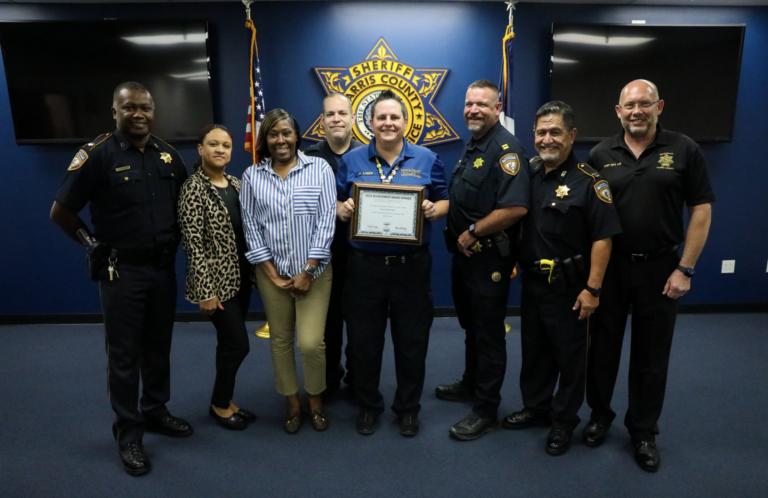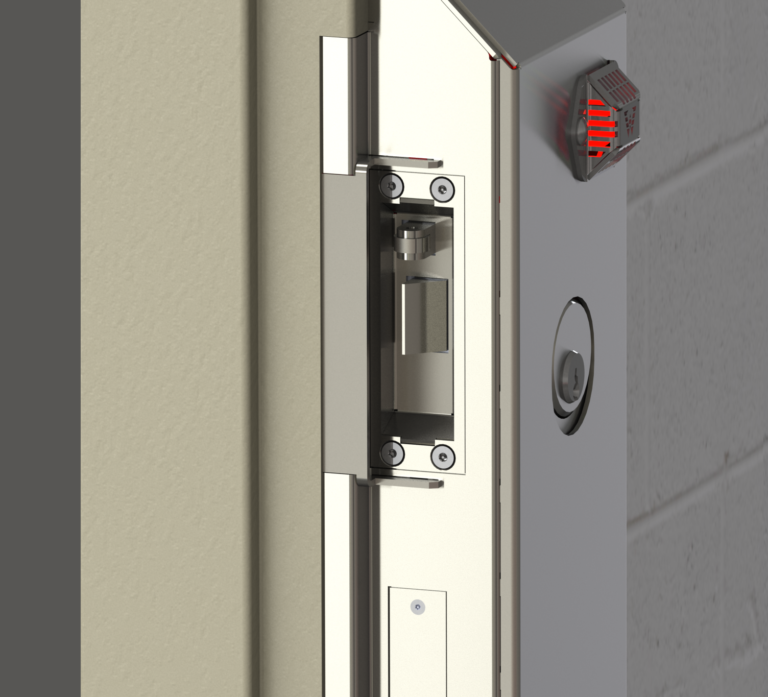Q & A Jan/Feb 2008 – An ‘I’ on Security
Youngblood
Sometimes the best surprises occur right in your own backyard. Such was the case for Sam Youngblood, co-founder and chief executive officer for ISI Security, which provides security products for correctional facilities with its ISI Detention Contracting Group and Metroplex Control Systems divisions.

Youngblood was looking for investors for his growing company when he found out that longtime acquaintance and fellow San Antonio-based businessman Bob Marbut had formed Argyle Security Businesses, a blank check company, that was looking to acquire a security electronics company.
The deal, which took affect in July, has been fruitful so far for both parties. Youngblood spoke with Correctional News during a phone interview.
Q: How is the acquisition by Argyle Security going to change the way ISI does business?
A: Argyle has access to capital through the public market that is in the form of equity, so we are not charged interest and we can raise money to expand our business and bonding capacity and do select acquisitions without creating a lot of debt and risk. It gives us a platform to grow in a very stable way. On our own, the only way to grow other than using our own earnings is to borrow. Since Argyle is a public company, we will still borrow some money, but we don’t have to.
The Argyle merger with ISI is very beneficial. We have been planning on doing something and it’s great that Argyle came along.
Q: How did the merger come about?
A: ISI was growing so fast that I knew we were going to need some investors if we were going to keep growing. Bob Marbut had raised $35 million and had it in the bank as a public company and he was looking for a company to buy.
I called him and we got together. He didn’t know I was looking, and I didn’t know he was looking. A mutual friend put us together and so far it has worked out great. We trust each other, we are both looking for the same thing, and his vision on how to expand the company and our vision at ISI are very similar. We are all going in the same direction.
Q: Do you think there is going to be a significant expansion in the near future?
A: Yes, ISI is enjoying a great period of growth in all three business segments of the company. ISI Security is the overall parent company, and then we have the ISI Detention Contracting division, which is a detention equipment contracting division, and Metroplex Control Systems, which has a division in the corrections market and the commercial security market.
The commercial security division has regional offices and we do security in all types of buildings, including schools, hospitals, hotels, petrochemical plants, and many other areas of the security market.
One of our primary focuses from an acquisition standpoint is to complete the national footprint of the commercial portion of our business, which is not in corrections. However, it will help corrections by giving us more locations where we can launch and serve our customers without having to go so far from our offices.
Q: Do you foresee other smaller security electronics contractors being acquired by Argyle?
A: We are looking at all kinds of things all of the time. Those kinds of options are always there and if something makes economic sense, we certainly are going to look at it.
Q: Where is your strongest client base right now?
A: We do business all over the United States . Because of the population migration to the south, the southern part of the United States along the coast and Mexico is probably the busiest.
Q: What is in the future for ISI Security? Are any new products and services planned for the near future?
A: We have developed some very unique command and control system graphic designs that we believe will be extremely beneficial to the end-user in how our touch screen systems operate. It will be similar to the iPhone and we believe these features and graphics are going to be extremely beneficial to prison operators who need quick access to information.
They will be able to get floor plans on their screens in order to react quickly during emergencies and heavy-load situations during the operating time of a facility when it is at risk. Those new products will be very helpful to our industry and will set some high standards.
We also have digital and Internet protocol management systems that allow for much less expensive video storage and management for off-site review of video information. It can be used in all sorts of ways by states and private prison operators that have multiple sites but want one central place to look at videos for litigation, safety, operations or training.
IP has been more expensive in the past, but it is catching on in the commercial security market like a firestorm. Since we are in that market and have perfected that technology, we believe that we are going to be able to bring the technology into the corrections market.
Q: So, IP security will be an option for jurisdictions with tight budgets?
A: We do a lot of IP with schools, which also have tight budgets. By getting experience with IP, we have been able to figure out a way to make it economical and a cost benefit. Our technology, training and the overall cost of the IP product lines — the cameras and recorders — is what is going to allow us to bring this to the corrections market.
Q: What other products are on the forefront of security electronics for corrections?
A: I see a lot of specific benefits from different kinds of video management command and control systems where there are a lot of features that are going to be able to help the customer, especially with IP and digital video.
Q: Will there be a learning-curve problem as systems become more complex?
A: We are finding that in commercial applications — schools, hospitals and other kinds of buildings — it is not that complex to use and the software is becoming more user-friendly. We deal with the same level of expertise with the security officers and correctional officers in correctional facilities, so I don’t feel it is going to complicate peoples’ lives. I believe it is going to benefit and save lives and make correctional facilities more secure.
Q: It seems like your company has learned a lot from its commercial clients.
A: In the corrections market, like any other market, you can get stuck in your own technology and not look outside your own industry for new ideas. Since we are involved with the commercial sector and corrections, we bring good things from each industry into the other. We believe that being in these markets and having several offices has been extremely beneficial to the development of technology, training and understanding of security electronics in general.






